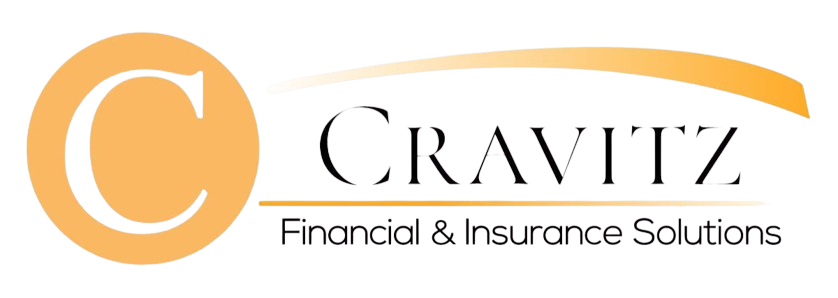Many retirees are surprised to learn that above a certain income, Social Security is taxed. In retirement, it's important to know how all your income streams will be taxed, and how to mitigate those taxes.
In this video, Ryan explains the following 3 strategies to Erin:
1. Convert to a Roth IRA
2. Consider Shifting Income Investments
3. Delay Claiming Your Social Security Benefits
Determining which strategy is right for you is a very personalized calculation, and it's something we specialize in at Cravitz Financial. For your detailed and personalized retirement tax plan, please give Ryan a call at 714-462-9155.
Full Transcript:
Erin: Ryan, good to see you today. We are talking through three strategies to minimize your Social Security taxes. Many retirees are surprised to learn that above a certain income, Social Security is taxed. In retirement, it's important to know how all your income streams will be taxed and how to mitigate those taxes. So let's start at the beginning. How are those Social Security taxes calculated?
Ryan: Yeah, this is so important. And the first thing I need to mention here is that oftentimes there's this confusion between the earnings test and whether Social Security is subject to tax. They're two very different things. The earnings test has to do with whether you're continuing to work and you're going to take your Social Security benefits prior to your full retirement age. In those situations, some or all your benefits could get withheld. That is not a tax. That's just the earnings test. What happens there is that once you reach your full retirement age, if you had any benefits withheld, they'll credit you with a positive adjustment going forward there.
What we're talking about is taxation. So if your only income is Social Security, you will not pay taxes on your Social Security benefits, at least not at the federal level. And you also won't in California. It's not taxed here in California. But the way you determine whether Social Security is going to be subject to taxation is you need to add up everything that you see here on your screen. So half of your Social Security plus your earned income. You'll notice even interest from municipal bonds is going to be on this list. So pretty much all of your income, you have to add this up.
And then once you've done that, you have to apply that number to the provisional income bracket. So that's what you can see right here on your screen. So for instance, for a married couple filing jointly, it's going to start at $32,000. And the high number there is going to be $44,000. So the $32,000, once you reach that on the provisional income, 50% of that money is going to be subject to tax. Once you reach the $44, 85% of that is going to be subject to tax. Note that you'll never pay taxes on a hundred percent of your Social Security income. The most that you'll pay taxes on, again, is 85%. It just depends upon what your other income is.
Erin: It's a lot to consider. Thanks for walking through that. So now let's talk through the three strategies that can help reduce your taxable income. And the first one is consider converting your tax deferred accounts to Roth accounts. Those tax deferred accounts are the greater liability, right?
Ryan: They are, because all that money was funded on a pre-tax basis. So when you go to withdraw the money, it's going to be subject to tax. So it makes a lot of sense to really think strategically about how and when you're going to start withdrawing money from those accounts. When you hit a certain age, maybe it's 73 or 75, depends upon the year you were born, you have to take out required minimum distributions. And so there's a required minimum amount there you have to take. But even before that, it might be wise, even if you don't need the money from those accounts to start taking some money from them, when you can withdraw that money at a presumably lower tax bracket than you might have to take it out in the future. So this is part of income planning, tax planning, and just being thoughtful about how you're going to distribute that money.
Erin: And I know this is something you specialize in, which is why I'm glad we get to talk through it. The second strategy, consider shifting your income investments. Some investments generate taxable income, others are non-taxable.
Ryan: Yeah, so this is about being thoughtful about how you're investing in different types of accounts. So some investments, for instance, might trigger a lot of capital gains. And it might be wise maybe to have that money invested in an IRA account or 401(k), something that is going to be tax deferred where you're not getting that 1099 in the mail every year. And then on the flip side, maybe having investments that don't trigger capital gains, at least not as much as the other ones because maybe they're more passive in nature, don't do a lot of trading. You may want to have those in a taxable account. So it's just about being thoughtful about where you're going to have money invested depending upon the type of account that it is and how it's taxed.
Erin: And the third strategy, this one seems straightforward, but I know it's complicated. Delay claiming your Social Security benefits.
Ryan: Yeah, there's definitely this desire the moment that we retire, we've gotten an income coming for most of our lives, maybe every two weeks we're getting that paycheck and then we retire. We start thinking, well, we got to turn on Social Security so that we can start to get some income. And for some people that makes sense. For others it doesn't make sense. It might make more sense just to withdraw money from savings or from an investment account or something like that and to delay your Social Security.
Remember, Social Security is a tax advantage income source, and if you can be, again, thoughtful about how you're going to take money from when and what income sources in retirement and kind of blend that together in a good strategic way, you can help to reduce the taxes that you'll have to pay throughout retirement, which can potentially give you more income to be able to live on. So it just has to do with that type of planning.
Erin: There's a lot that goes into this. Clearly these strategies are a little bit of advanced math. So if somebody wants to talk to you about implementing them now to help themselves when they are retired, what's the best way to reach?
Ryan: You can call 714-462-9155. Otherwise, just go to the website, CravitzFinancial.com. You can go to the contact page and submit something there, and we'll get back with you.
Erin: Great. Ryan, thank you.
Ryan: Thank you.

News You Can Use
Get actionable financial advice delivered to your inbox a few times a month.
